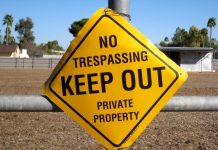
Reliable journalism is based on applying strict editorial ethics to all we do so that we can examine the issues that have the most impact on the lives of our audience.
If the content you produce pushes an agenda, spins a line, favours a sector of society, promotes a certain initiative without question, is manipulated to achieve a subjective outcome, or has a desired objective, you are probably producing public relations copy or even propaganda.
So, does your journalism pass the test? Consider the following questions to see whether your journalism is ethical or not.
Questions to consider
- What is your journalistic purpose.
- What do you hope to achieve by doing the story?
- What is your personal motivation?
- Do you have any vested interests in the outcome?
- Have you included different perspectives and diverse ideas?
- Is the journalism you produce is thorough and informative?
- Have you ignored any elements that might appear to weaken the story you are writing?
- Have you considered what motivates those you are interviewing?
- Are all your questions fair, or are they leading or manipulative?
- What are the possible consequences of the story you are producing both in the short term and long term?
- Are you using those you choose to interview in order to strengthen your article without considering the possible harm they might suffer once the story is published?
- Are you able to justify your editorial decisions to your colleagues, to those who you interview, and to the public?
- Is your journalism original, well-sourced, accurate, and honest?
Getting it right
- Keep your eyes wide open – seek truth and report it as fully as possible.
- Act independently – owe nobody and don’t seek favours or favourites.
- Minimise harm – protect your sources, respect privacy, be aware of possible consequences.
- Assess all facts – don’t ignore the uncomfortable, or that which goes against your script.
- Seek out independent sources – don’t follow the flock, find fresh voices and perspectives.
- Thoroughly check the validity of information – take nothing at face value and make sure you have researched and can justify the inclusion of every fact.
- Be wary of subjective manipulation – don’t be swayed by those who want you to put a positive spin on news.
Attitudes of mind
- Be honest, fair, and courageous in your news gathering and reporting.
- Give voice to the voiceless
- Scrutinise the executive.
- Hold the powerful to account.
- Guard vigorously the role a free media plays in an open society.
- Seek out and disseminate competing perspectives, especially those which are rarely heard.
- Remain free of associations and activities that could compromise your ability to publish the truth.
- Always consider how your journalism could impact the lives of those who feature in your coverage.
- Treat all with respect, and not as a means to achieving your journalistic end.
Accuracy
- All work must be well-sourced.
- It must be based on sound evidence.
- Your writing must be thoroughly fact-checked.
- It must be presented in clear, precise language.
- Avoid spreading unfounded speculation, rumour and gossip.
- Accuracy is more important than speed.
- Never rush a story to be first with the news; better to be second and right rather than first and wrong.
- Ensure you always weigh all the relevant facts and information in order to get to the truth.
- If an issue is controversial you must always include all relevant opinions so that your reporting is not one-sided.
- Gather material using first-hand sources wherever possible.
- Ensure you read through everything you write.
- Check the authenticity of documentary evidence and digital material.
- Corroborate claims and allegations made.
Diversity
- Always strive to reflect a wide range of opinions.
- Always be prepared to explore a range of conflicting views.
- Never ignore any significant strands of thought or under-represented groups.
- Exercise your freedom to produce content about any subject, at any point on the spectrum of debate, as long as there are good editorial reasons for doing so.
- Ensure to avoid bias or an imbalance of views on all issues, particularly controversial subjects.
- You will sometimes need to report on issues that may cause serious offence to many. You must be sure that a clear public interest outweighs the possible offence.
Public interest criteria
- The story exposes criminal activity.
- It highlights significant anti-social behaviour, corruption or injustice.
- The story discloses significant incompetence or negligence.
- My journalism is uncovering information that allows people to make informed decisions about matters of public importance.
- The story could help protect the health and safety of the public.
- It could preventing the public from being misled.
- The story protects issues of freedom of expression.
Fairness
- Be open, honest and straightforward in dealing with contributors, unless there is a clear public interest in doing otherwise.
- Where allegations are being made, the individuals or organisations concerned should normally be given the right of reply.
Privacy
- It is essential in order to exercise your rights of freedom of expression and information that you work within a framework which respects an individual’s privacy and treats them fairly while investigating and establishing matters which it is in the public interest to reveal.
Integrity
- Always remain independent of both state and partisan interests.
- Never endorse or appear to endorse any organisations, products, activities or services.
Sources
- Accept information from any source, but know you will need to make a personal decision as to which information is worth considering and which is not.
- Sources must always be checked, especially when dealing with first-time sources that have never been used before.
- It is important to protect sources that do not wish to be named.
 Questions
Questions
- What are the main principles of reliable journalism?
- How can you differentiate between journalism and public relations or propaganda?
- What questions should a journalist ask themselves to ensure their work is ethical?
- Why is it important for journalists to include diverse perspectives in their reporting?
- How should journalists handle controversial issues?
- What role does accuracy play in journalism?
- How should journalists approach the use of sources, especially first-time sources?
- What is the significance of public interest in journalistic reporting?
- What is the relationship between journalism and privacy?
- How should journalists maintain integrity and independence?
Answers
- Reliable journalism is based on strict editorial ethics, examining impactful issues, and avoiding bias or manipulation.
- Journalism is differentiated by its adherence to ethical standards, while public relations or propaganda often push agendas or manipulate outcomes.
- Journalists should consider their purpose, motivations, vested interests, perspectives included, thoroughness, fairness, and potential consequences.
- Including diverse perspectives ensures comprehensive coverage and prevents bias, enriching the story with varied viewpoints.
- Journalists should report on controversial issues by including all relevant opinions and ensuring a clear public interest justifies potential offence.
- Accuracy is crucial; it involves thorough fact-checking, clear language, and prioritising truth over speed to avoid spreading misinformation.
- Journalists should verify all sources, especially first-time ones, and protect those who wish to remain anonymous.
- Public interest is significant as it justifies reporting on issues that expose wrongdoing, inform the public, and protect societal values.
- Journalism must respect privacy while balancing the public interest, ensuring fair treatment during investigations.
- Journalists maintain integrity by staying independent of state and partisan interests and avoiding endorsements or biases.








